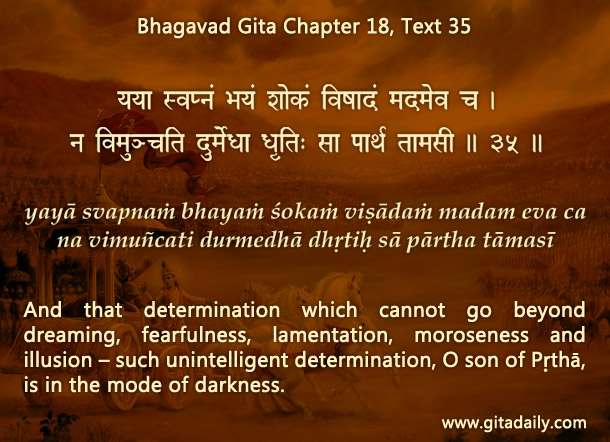Suppose someone gets a major injury in an accident. That injury may limit their mobility and alter their life significantly. If the injury is irreparable, they will have to live with it. Still, they don’t have to live in it, that is, they don’t have to constantly dwell on their misfortune and indulge in blame games or succumb to bouts of self-pity. Such self-destructive mentality is what the Gita calls a perverted intelligence in the mode of ignorance (18.35).
We need to adopt the same approach to emotional wounds we may have sustained in our past. We may have had a difficult childhood, heartbreak, betrayal or some such agonizing experiences. Because both emotional wounds are subtle and invisible — and so are emotional burdens — we may not realize how they are affecting us and how much they are affecting us.. How can we regulate our past’s influence on us?
By understanding that though our past will come with us, we don’t have to go toward it. That our past will come with us means, some effects of our past may be unchangeable: those scars may shape us, those experiences will shape how we see things, those difficulties may make certain things difficult for us to do. But beyond such unchangeable effects, some things are eminently changeable. That we don’t have to go toward our past means we don’t have to let ourselves dwell on past wrongs, be they the wrongs that others have committed to us, or the wrongs that just befell us or even the wrongs that we ourselves committed.
Whatever be our past, we can take responsibility to focus on our present and use it to create a bright future.
One-sentence:
Our past will come with us, but we don’t have to go toward it.
Think it over:
- How are our emotional wounds like our physical injuries?
- How will our past come with us?
- How can we avoid going toward our past?
***
18.35: And that determination which cannot go beyond dreaming, fearfulness, lamentation, moroseness and illusion – such unintelligent determination, O son of Pṛthā, is in the mode of darkness.


Ride on the PAST ,to pursue the PRESENT.
Absolutely true and writer has very well explained one of the aspects of Geeta.